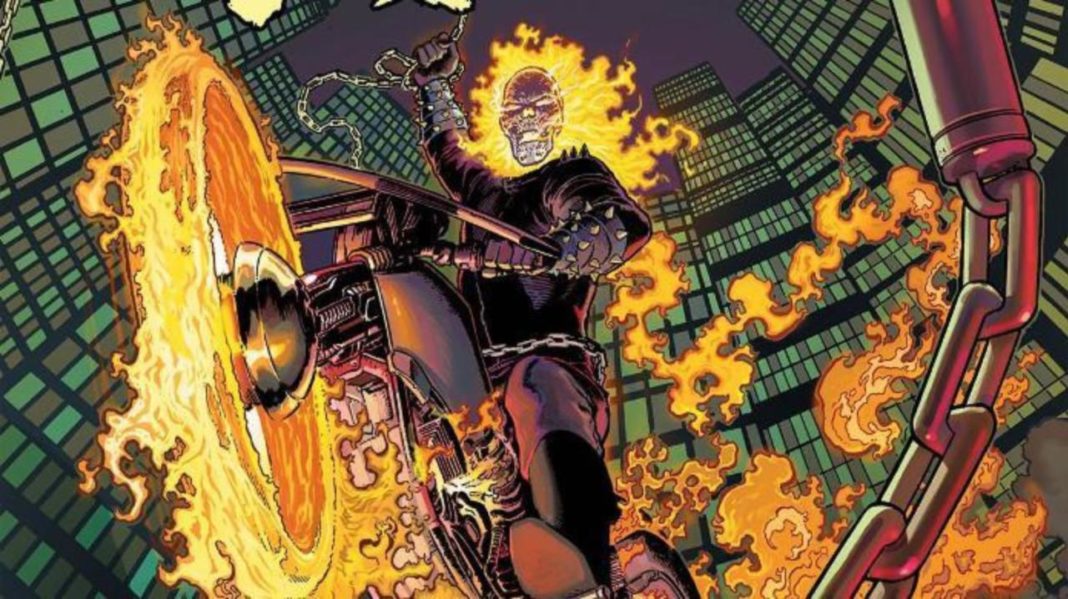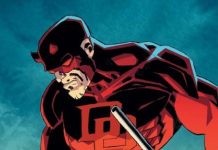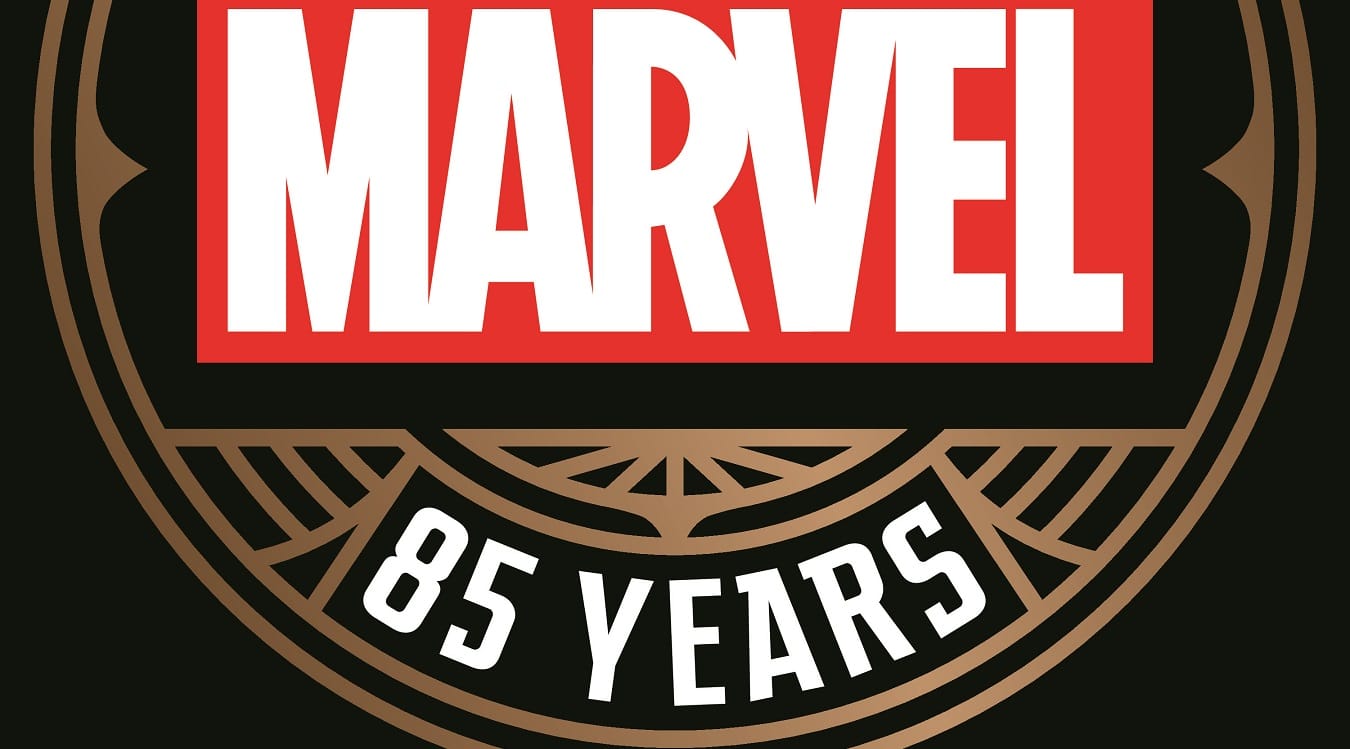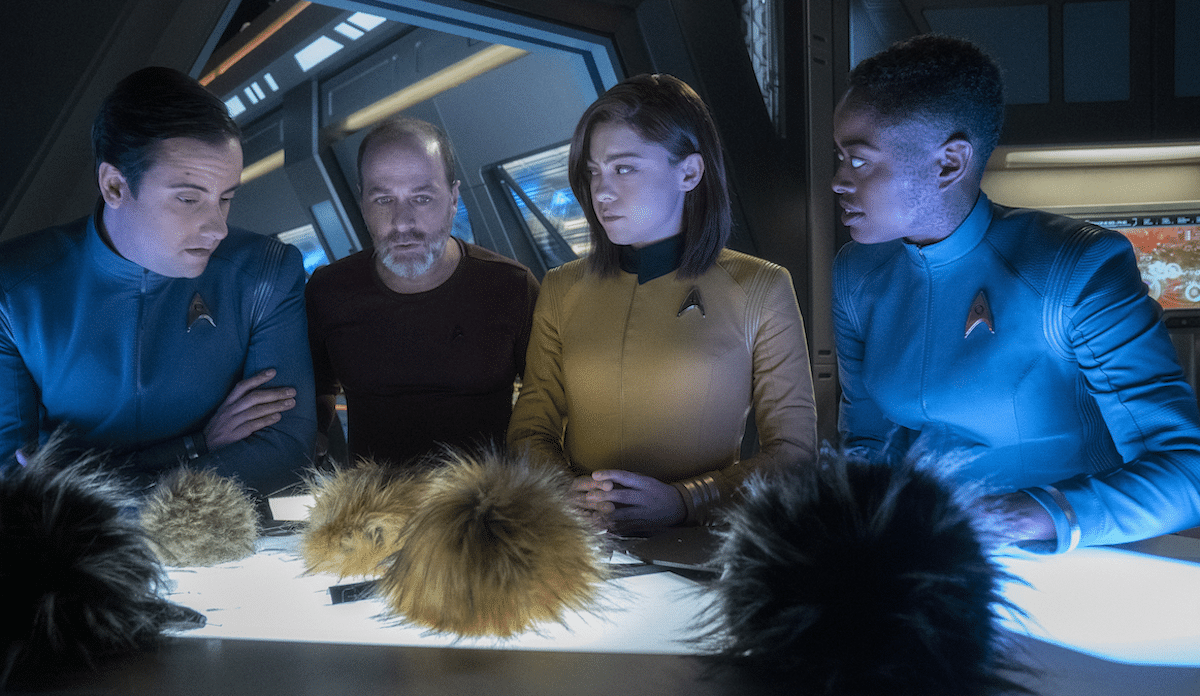At Fan Expo Canada 2019, I had the chance to sit down and talk with writer Ed Brisson about his current Marvel projects. He’s got new launches coming this year, the first being Ghost Rider with Aaron Kuder, and the second being New Mutants with Jonathan Hickman and Rod Reis. Ed was very generous with his time and we had a pretty great conversation.
The Beat: I’m a huge fan of Dead Man Logan by you and Mike Henderson, and I didn’t think we’d ever see this character killed off. How did you get the chance to do this book and tell that story?
Ed Brisson: How I first got onto Old Man Logan was, unfortunately there’s no exciting story behind it, they just called me and asked me if I wanted to write Old Man Logan. For a lot of Canadian comic book readers Wolverine is such an important character because we don’t have a lot of Canadian characters in comics. Growing up I was a huge Wolverine fan so any opportunity to write him was pretty exciting. It was pretty early on that we decided he was going to die, I think it was near the end of my first arc. It was something that came up in one of the writer’s summits because we knew the proper Wolverine was coming back. Marvel was trying to get away from having that many versions of characters. We discussed what to do and the idea of killing him off and to give him an ending that rings true with his beginning. I’d come up with an idea when they proposed killing him on how I thought it should happen and how we can make a really good story where we can tell the arc of this character. Since he’s from a different universe it’s something that hopefully we can get away with; when he’s dead he’s dead. So that was a thing I was throwing around the room, on how we could do it. Originally the series was just going to be called “Logan” but somebody in the room, George who works for Marvel and books our travel and does a lot of organizing behind the scene, said we should call it “Dead Man Logan” and we all thought that was great.
The Beat: What’s your relationship with the original Old Man Logan story by Mark Millar and Steve McNiven?
Brisson: I’m actually a big fan of the original story, and one of the things I really wanted to do when coming aboard Old Man Logan was that there were a lot of threads I wanted to see resolved. The thing with Mysterio being the one who pushed Logan in the original story and getting him back mostly. I was reading the book when they offered it to me. I read the original book years and years ago when it came out and I was following along with the first Brian Michael Bendis run tied to Secret Wars and then Jeff Lemire’s run on the book. I was already a fan of it so it was pretty exciting and incredibly intimidating to come on the book and follow up on Millar, Bendis, and Lemire. Writing him is something that feels very easy to me and I naturally fell into it.
The Beat: You’ve co-written X-Men books in the past with the Uncanny X-Men ten-issue weekly with Matthew Rosenberg and Kelly Thompson. How does that experience compare with writing the New Mutants book with Jonathan Hickman?
Brisson: They’re both very different in that with Uncanny me, Matt, and Kelly sat down and we built the story together from scratch. We threw out a bunch of ideas before meeting up in person – Marvel flew us out to have a mini retreat where we hashed out the story and we took a couple months after that to really flesh it out. There were very little mandates and stuff that had to happen. When Hickman came to me he already had an idea of what was going to happen with the New Mutants. He has a story that he wants to tell. Originally I was going to take over the series after he finished his story which is going to feed into something else with the X-Men. We decided to do the first issue together to set up some things. It was different in that I came into it and there was already a goalpost set for where the first arc needed to go. Jonathan had a lot of ideas that we needed to incorporate into the first issue. We I take over is all me. We do issue one together, he does issue two, I do issue three, he does four and five, and I take over at six. It’s not as wholly collaborative as the Uncanny weekly thing was.
The Beat: You’ve been involved in a few X-Men status quo changes, from Extermination to the Hickman relaunch. How does it feel to transition from the status quo to this brand-new change to these characters?
Brisson: It’s pretty exciting. I like to shake things up and seeing this new status quo coming into place provides a lot of writing challenges that are exciting for both myself and for what the readers are going to get down the road. There are some giant changes coming for who the X-Men are and what they’re all about. There’s this idea to constantly look forward and push with the X-Men into a new era and I think it’s what we need to do. With comics you get tied up in the nostalgia and looking back at things that we read when we were younger. That’s got its place and there are some good stories that have come out of it but if we’re constantly looking backwards then we’ll never make any progress. We’ll get to a point where everything is just a remix of what’s happened in the past. It’s been great, I’m very excited about it.
The Beat: How has it been working with Hickman as showrunner of the X-Men line?
Brisson: He’s got some incredible and really crazy ideas. It’s all about finding and laying parameters and just going to work. In a lot of ways it’s different because he’s Hickman and he’s this industry giant, but in other ways it’s no different than an editor coming in and saying, “This is your scope, this is where you have to work within, and here are the rules of the world now. Go.” Hickman’s very hands-on though, which is great. He’s got a vision and wants to make sure that we’re sticking to it. I find I’m pretty easy to work with, we get along really well. I haven’t had any problems with it. I think that we’re going to get something that feels very Hickman-like, even on the books that he’s not working on. That’s not to say they’re going to be written like Hickman. He and I have very different writing styles. He’s into the politics of everything with a giant world-view while a lot of my stuff is grounded and human and individual struggles within a team. It’s interesting to try and satisfy these two things.
The Beat: Is he giving you plots?
Brisson: No, we pitch him. Everyone who’s been working on the books come with ideas and workshop them a little bit until they’re at the place they need to be.
The Beat: At the Writing for Comics panel here you mentioned having to maintain your own voice, so it’s cool that you guys get to do that.
Brisson: You absolutely have to do that. I was saying on the panel that with my first books at Marvel I was trying to satisfy what I thought Marvel wanted and I think I lost my voice a bit. It wasn’t until I did Bullseye who was such a perfect character for me to write because I love doing that crime stuff. There was so much of my voice in there that helped it resonate with readers and got me more work with Marvel. You need to make sure that your voice is in there, even if you’re playing in someone else’s world.
The Beat: You’ve got a new Ghost Rider series spinning out of the current Avengers arc, what can you tell us about it?
Brisson: The Avengers arc is setting it up, reminding people of where Johnny’s at. For people who didn’t read Doctor Strange: Damnation that came out last year, they might not know that Johnny Blaze is the king of Hell now. He’s taken over the throne from Mephisto. Ghost Rider is going to be both Johnny Blaze and Danny Ketch. Johnny is the king of hell, but like with all new management, the staff hate him. He’s having a lot of trouble and nobody respects him. He’s trying to keep it all together and is constantly getting messed with by demons. It’s a tougher job than he thought it was going to be. Danny is still living in Cyprus Hills, he owns a bar called the Fadeaway, and now has a drinking problem. And he absolutely still hates being Ghost Rider, but he’s our de facto Ghost Rider on Earth. He gets into the position where he’s trying to give himself over to it as little as possible and he’s not usually a willing participant. That’s where we start with both characters. We start with Johnny trying to deal with a Hell outbreak with demons on Earth, and he needs Danny’s help. Things go real bad and we start to learn that there’s a lot of behind the scenes politics that are at play with Hell and some other places that are really gonna do a number on both these two.
The Beat: Are there any other Ghost Riders involved like Robbie Reyes or the Cosmic Ghost Rider?
Brisson: We don’t have Cosmic Ghost Rider or Robbie in it right now, I wanted to focus on just Danny and Johnny for a good while. The first few arcs are just the two of them being on the same side and then slowly drifting apart, and about the complications that come out of that. It’s about this weird behind the scenes politics in Hell with Lilith, who people might remember her from the 90s Ghost Rider series. She had that weird, crazy forehead. We’ve redesigned her, we gave her a regular forehead. I believe she has bangs now. It takes a while to learn what’s going on with her but she’s angry at Johnny because she’s been waiting in the wings to take over if something were to happen to Mephisto. Something has, and she’s pissed. Mephisto’s sitting in jail in Las Vegas, super thrilled at everything that’s happening, at all the carnage that’s happening because Johnny can’t do the job. He’s, maybe, antagonizing things from his cell which is going to cause some potentially giant, all-life-on-Earth-threatening events. It’s a really big story that we’re telling.
The Beat: Is this happening in the Ghost Rider book or is this Marvel Universe-wide?
Brisson: It’s happening in Ghost Rider, there’s a lot of other big things we’re doing. We’re bringing in some new characters and old ones, like Lilith, the Caretaker from Jason Aaron’s run. We’ll be building on the Ghost Rider mythology, with a lot of new stuff that weirdly fits into the stuff that’s already been established.
The Beat: What’s your history with the character?
Brisson: I’m a huge fan, my first Ghost Rider was Danny Ketch in the 90s by Howard Mackie and Javier Saltares, with Mark Texeira inking him. From there I went back and got into Johnny Blaze. I was thirteen or fourteen when that came out: a dude with a flaming skull on a motorcycle was the coolest thing. Jason has one of the best Ghost Rider runs of all time, it’s an incredible run. That really hit me hard when it came out. It was super crazy and had some really smart mythology stuff going on. He’s always been one of my bucket list characters, so when I found out that Marvel was doing a Ghost Rider book, I found out the editor was Chris Robinson who I’ve worked with already, and I harassed him pretty much nonstop for six months to let me write the book. Thankfully he capitulated.
The Beat: How’s it been like working with Aaron Kuder?
Brisson: He’s incredible and he’s doing some absolutely insane designs. There’s a scene in issue one that I won’t give away, which was a scene that I didn’t think Marvel was going to let me do. It’s a little bit nasty, a little bit weird. I wasn’t sure how it would look on the page, in my mind it looked great but Aaron just murdered it. It’s so good. He’s been designing a lot of characters, and redesigning Lilith. I think we start teasing those characters in issue three.
The Beat: To me, Marvel seems incredibly creatively energised right now. How does it feel to work there now as a writer?
Brisson: It feels incredible just in general. I self-published for over twenty years. I’ve been at this for a long time, so to have done it for this long I’d already given up on the idea of working for one of the Big Two publishers. Especially Marvel, which is what I grew up reading. It feels like if you watch the Blue Jays your entire life, and then you step up to bat for them. It’s really surreal. I’m almost four years in for writing at Marvel and it’s still hard for me to believe that I do that. When I get angry at work I realise I’m doing the thing I’ve wanted to do since I was eight. Being there right now with so many books blowing up, to be a part of that is great. I feel incredibly lucky. I’m not a spiritual guy at all but I feel really blessed to be here at the moment. A lot of us creators talk to each other all the time and I think we feed off of one another. Once a couple books start catching fire then it’s almost like it’s contagious, and everyone starts getting into that zone. We’re trying to push stuff into new and exciting directions.
The Beat: Lastly, I’m curious as to the status of your independent stuff. Are you just writing for Marvel for the foreseeable future?
Brisson: I have one creator-owned book that’s already been greenlit. I’m not going to say with who or who’s working on it, but it’s a publisher I’ve worked with in the past. We’re just trying to find the time to get to it. I have this weird luck where whenever I start working on a new book with a creator, they get picked up by Marvel or DC. Which is great for them and sucks for me. That’s the case of what happened here, the artist hadn’t done any Big Two work when we start putting this together and now he’s getting a lot of Marvel work. Just today we were sitting down and figuring out what our schedule’s going to be like so we can actually get this book done. I’ve got another one that’s in very early stages where a couple publishers approached an artist friend of mine to do a book, and he and I have talked about doing a book for years. He hit me up and we put together this idea for a crazy book about a cult that I’m pretty excited to get to. It’s probably not what anyone thinks it’s going to be. I’ve got a third one that I’m slowly trying to put together. I want to get back to doing more creator-owned work, I wanted to do a couple years at Marvel first to get my name out there. When I was doing Image work in the past, it got decent reception but it would be great if the artists could eat.







